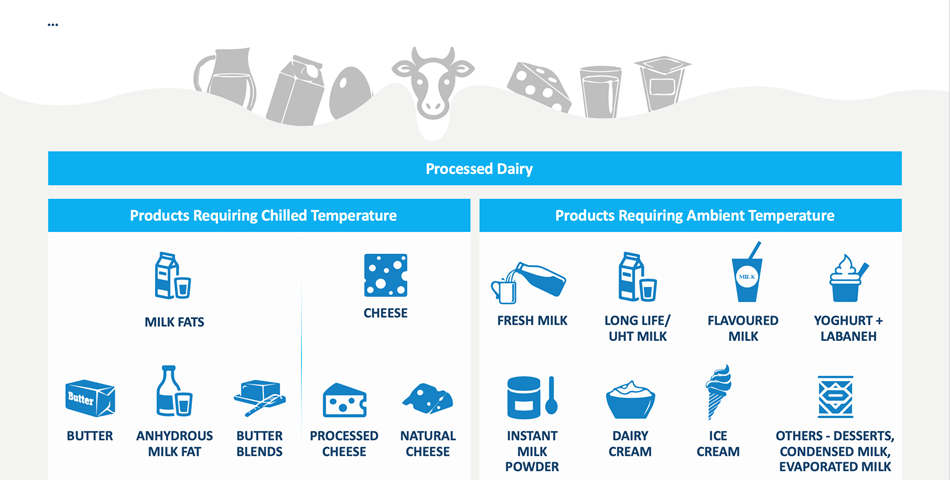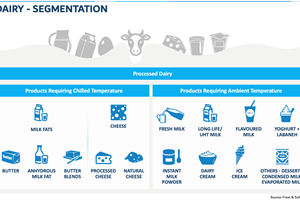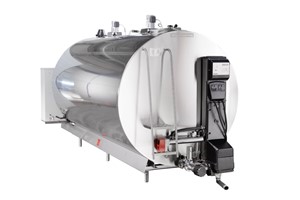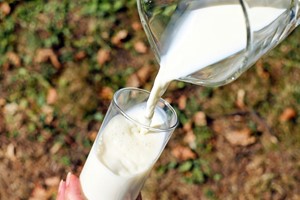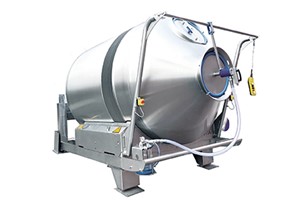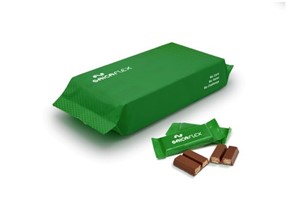The dairy sector in any country operates as a nerve center of the Food & Beverage (F&B) ecosystem with a majority of the categories serving it as a good source of protein and calcium to the local consumers. The GCC market is no different. They operate through a thriving dairy sector that comprises processed dairy products as well as dairy ingredients such as milk powders (skimmed milk powder, whole milk powder amongst others) as well as whey products (whey powders, whey protein isolates, to name a few).
Like many other industries, COVID-19 pandemic has had its impact on the dairy segment in The Kingdom of Saudi Arabia (KSA) as well, especially in the short run. However, one must note that in the last six months, all dairy companies have adopted adequate measures to bounce back to their normal course of operations. Whether the processed dairy products are stored in chilled temperature or ambient temperature, their consumption patterns have undergone changes in both the HORECA as well as the retail segment. Pandemic has led to a decrease of 60 percent-70 percent in the consumption of processed dairy products within the HORECA segment.
Essential products such as cheese, flavored milk and butter witnessed a sharp decline in consumption with kitchens operating at minimal capacity. Restaurants such as Hardees, KFC, Mcdonalds that procured cheese in bulk for their burgers and other breaded products witnessed low customer footfalls. Online orders witnessed a decline, resulting in a reduction in overall consumption. Other products such as laban, liquid milk (UHT/ fresh milk) and milk powders saw an increase in retail consumption, thereby offsetting the decline caused in the HORECA segment.
Dairy cream that was consumed mostly in hotels and restaurants saw an increase in consumption through the retail segment, as we saw consumers experimenting with their culinary skills and trying new dishes, as going out for a meal with family was not an option. The overall segmentation for processed dairy products is based on storage norms and practices for different categories. Basis this, dairy products are classified into two segments; those stored in chilled temperature and those in ambient temperature.
Processed dairy segmentation
The dairy product consumption market in the KSA is estimated to drop by 15 percent-20 percent by the end of 2020. This decrease is on account of major hotels/restaurants and catering (HORECA) services shrinking their operations as HORECA segments are still not permitted to operate at full capacity. KSA retail segment witnessed an increase of 20 percent, from historical 65 percent -70 percent to 85 percent-90 percent in lockdown period.
Further, the contribution of HORECA is estimated to slip from 35 percent-40 percent to 10 percent-15 percent during 2020. During the lockdown period, the mass exodus of expatriate laborers to their native countries lead to a decrease in demand for F&B items including dairy products such as milk, butter and labneh that was regularly consumed by workers in factory premises. For instance, companies that catered to a headcount of 50,000 PAX in 2019, had to now cater to only 10,000 PAX. The COVID-19 pandemic has compelled dairy companies to make adequate arrangements related to hygiene and employee safety by ensuring limited workforce at the factory premises. With reduced capital spending, tapered cash flows stemming from lower sales and higher working capital, both large and mid-sized players saw their margins diminishing.
Given the current uncertainties as well as the perishable nature of dairy products, companies in KSA, as well as overall GCC are exploring new investment avenues locally till the situation across the world gets normalized, and we see an influx of GCC and outbound tourist resume. With hygiene and freshness becoming a key concern for consumers, we see a shift in their preferences towards fresh products (e.g. fresh milk) in comparison to long-life products such as Ultra High Temperature (UHT) milk which also demands increased usage of cold chain facilities. During the initial days of the lockdown when bulk buying/panic buying was a trend in retail stores, UHT milk, being a staple product had a major offtake from shelves. However, with the gradual relaxation in lockdown norms, consumers displayed a preference for fresh milk as it has better nutrient content and considered more ‘natural’ in comparison to packaged milk (UHT milk).
“Localness” has played a significant role amongst customers. Locals believe that domestic manufacturers follow proper norms and procedures during the production and processing of dairy products. With many consumers being reluctant to order food through delivery channels during the initial phase of the lockdown, QSR’s and Restaurants were adamant in using local ingredients for its dishes, thereby capitalizing on the “pride factor” that local Saudi’s have towards homegrown brands. The lockdown also witnessed an increase in wastages for dairy products in the HORECA segment due to the low footfalls that resulted in limited utilizations of dairy inventories. However, hotels, restaurants, as well as retail chains, have built upon their cold chain infrastructure to ensure that there is no disruption in supply and distribution of processed dairy food products from manufacturer/supplier to the end-user.
In conclusion, processed dairy product consumptions will come back to its historical estimates subject to the HORECA segment resuming its normal course of operations and with religious tourism, business travel getting back on track. Normalcy is expected either with a vaccine or with a majority of the population developing herd immunity. The dairy industry in KSA operates on similar patterns to dairy industries located in other parts of the world. Frost & Sullivan believes that dairy, being a staple product, will be driven by retail channels over the next six months to one year.
Prithvijit Roy
Food & Nutrition Consultant
Frost & Sullivan
ww2.frost.com




